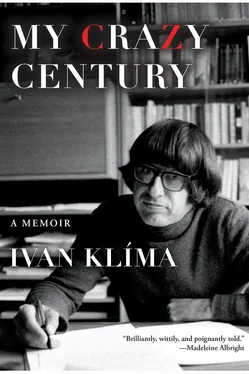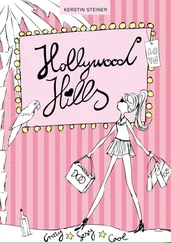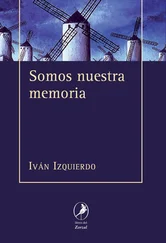Her trust and encouragement flattered me, but the prospect of joining any sort of organization was alarming. I made bold to object that it didn’t really make sense now at the end of the school year, but I would talk it over with my parents.
Essay: The Victors and the Defeated , p. 433
The following school year did not start out well for me. When I entered the classroom and headed for my desk, I saw that the seat in front of mine, where Rost’a usually sat, was occupied by Richter. He didn’t dare take my seat but correctly assumed that Rost’a would offer no objection. Richter was truly the worst student in the class and also the biggest bully. It was only by a miracle that he hadn’t flunked (perhaps the February coup had a hand in it, since as the son of a house porter and a cleaning woman he had the best class origin of any of us). His seat used to be always assigned, usually in the first row where he didn’t dare demonstrate his boredom. Sometimes, however, he was placed in the back row so that his apathy would not depress the teachers. Rost’a’s seat in the very center of the third row was decidedly the most advantageous. He could copy from his classmates and at the same time hide behind those in front of him.
I shouted at Richter to clear out of Rost’a’s seat. He replied that the seat belonged to him because it was the beginning of the year and he’d gotten there first. I told him he was behaving like an extortionist and furthermore a Nazi, which was the worst name I could think of. Then I tried to shove him out of the seat. We immediately started fighting. Because there wasn’t enough room in the aisles, we tussled our way up to the front of the classroom, and a crowd of onlookers gathered around us. One of the girls urged someone to tear us apart or we’d kill each other. No one did, and why would anyone? So we traded punches and Greco-Roman wrestling moves in which my opponent was more competent. A moment later I was on the ground with the victorious Richter kneeling on my chest and enthusiastically banging my head against the floor. But before he managed to batter the consciousness from my skull, his frenzy suddenly abated. He released me and calmly rose to his feet.
I sensed a curious silence in the room.
I stood up, wiped my bloody face, and only then looked around. Next to me stood an unfamiliar teacher, whose short plait of hair at the back of his head, like something worn by the Chinese in pictures I’d seen, held my attention. He spoke fluent Czech, however, and asked us our names, and then noted in the class register: “Richter and Klíma were brawling like two mongrels and would not stop even in my presence.” In the meantime, Rost’a assumed his original seat, and before yet another fight broke out, a second unfamiliar man stepped into the classroom. (Our teachers were always changing now.) His appearance suggested one of those lightly graying gentlemen from British films that had until recently been playing in the theaters. He even addressed us in faultless English. When he concluded from our expressions that we understood not a word, he informed us in Czech that his name was Marek and, as we could see, not only would he be teaching us English but at the same time he would serve as our homeroom teacher, which, his colleagues had informed him, was the worst thing that could happen to him at this school. Then he opened the class register, examined it for a moment, and said, “Well, well. It seems my colleagues were not exaggerating. Considering the fact that school started five minutes ago, you really seem to be in a hurry. Klíma and Richter, stand up.” He looked us over. “I am obliged to punish you severely. But first, what have you to say in your defense?”
Richter, as usual whenever he was asked anything, clammed up.
“I wasn’t fighting,” I objected.
“How am I to understand that?”
“He started it,” I said.
The teacher grimaced and told us both to sit down. Then he spoke at length in English, which seemed to us flawless even though we didn’t understand a word.
Moments after taking his seat behind the desk during the following period, he confided to us, “You’ll never guess what I’ve been entrusted with. Mrs., that is, Comrade Principal has charged me with the collection of old paper, which most likely includes rags and bones. This was to be expected since I’m new here, and, through this politically beneficial activity I will have the opportunity to correct my contemptible efforts to propagate the language of imperialists, warmongers, and Shakespeare. I have no choice but to offer you the same opportunity to atone for the sin that you continuously commit by deciding to study.”
He glanced around the room in which he knew only the two rogues who had started fighting before the new school year had begun.
He pointed at me. “Klíma, I daresay that not only are you capable of committing frightful offenses against school rules, but you’re also able to cope with difficult situations. I see you as the most appropriate adept for this praiseworthy activity. I hereby appoint you collections officer of the entire school. You have a sense for the passive voice, I assume, so pay attention: From this moment you are put in charge.” He grinned and added serenely, “I believe that in this function you will perform much better than in a fight.”
*
I soon joined the Czechoslovak Union of Youth. Several students from our class did too. We were accepted at a meeting that took place in the art room. A smiling twelfth-grade girl in a white blouse with a badge of the union was acting as chair. She introduced herself as Milena. She welcomed us briefly and noted how wonderful it was that the organization was growing. Then she invited us on a cleanup brigade in the school neighborhood.
When the meeting was over, she approached me and said she’d spoken to the principal about me. She thought I should be the chair in our class.
Until then I’d been the chair of our church choir youth group. It seemed to me that these two functions didn’t quite jibe. I asked her what she thought.
“It would be fine.” She beamed. She went on to say that it wouldn’t really be any work at all. I’d just call a meeting every now and then and if necessary get people to go on brigade work. She would always tell me about an event well ahead of time.
I liked her smile. If I’d been a little bolder, I would have perhaps invited her for a walk in the park, but I merely said I would think it over.
I had my hands full, as I had started publishing the school magazine with the consent of the principal. I cannot recall a single contribution, but I do remember that we had to return all the used duplicating paper to the office. I didn’t suspect that having access to copy paper and a mimeograph was a great advantage in a land where not a single line could appear without being approved by the appropriate comrades.
The weekly newsreels showed clips demonstrating the constructive enthusiasm of the workers. Weavers were using an ever greater number of looms; miners were accepting obligations to extract more and more coal; smelters poured out white-hot gleaming steel by the ton. Also, with the help of youth brigades, new smelting houses and dams were being constructed along the Vltava River. At numerous and apparently unrelated meetings, participants would applaud enthusiastically and proclaim glory to the Communist party along with Comrades Stalin, Gottwald, Slánský, or Zápotocký. The comrades would smile amiably and sometimes during a demonstration bow down to accept a bouquet proffered by a young girl, whereupon the crowd would applaud all the more ecstatically. The newsreels also showed black marketeers covering up hundreds of bolts of cloth, pairs of shoes, or sacks of flour whereby they sought to destroy our market. It was only because of these vampires, we were told, that our goods were rationed.
Читать дальше












